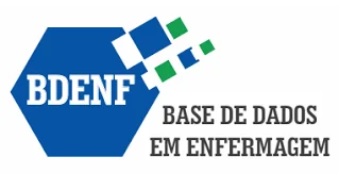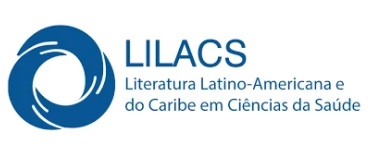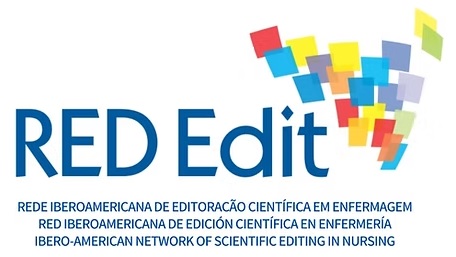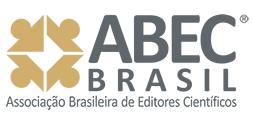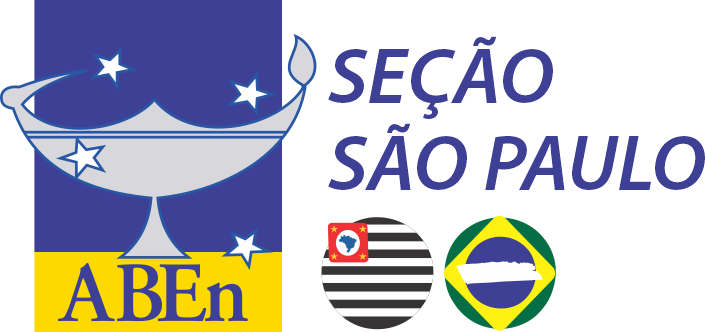A dramatização como estratégia facilitadora no processo ensino aprendizagem dos estudantes de enfermagem
Palavras-chave:
Educação em Enfermagem, Estudantes de Enfermagem, Desempenho de Papéis, Psicodrama, SimulaçãoResumo
A necessidade de fundamentar as práticas educativas para uma ação transformadora impulsiona o educador na busca de métodos de ensino inovadores e assim sendo, a dramatização favorece a aprendizagem do estudante de forma ativa e participativa. Objetivos: Levantar os estudos sobre a utilização da dramatização e verificar os resultados na aprendizagem do estudante de Enfermagem. Metodologia: Revisão sistemática da literatura, norteada pela questão: “Quais os resultados da aplicação da dramatização na aprendizagem do estudante de Enfermagem?”. Resultados: 64 estudos incluídos, 100% indicaram resultados positivos com a utilização da dramatização, 77% evidenciaram melhora na aquisição de conhecimento teórico, 66% na associação entre teoria e prática, 45% no pensamento crítico e 30% no relacionamento interpessoal. Em 13% estudos a dramatização foi associada com dificuldades do aluno no estabelecimento de prioridades e embaraço pelo medo de exposição no grupo. Conclusão: A dramatização contribuiu na construção das competências profissionais estimulando a aprendizagem, o desenvolvimento de habilidades técnicas e comunicacionais, a criatividade, o pensamento crítico e o relacionamento interpessoal.
Referências
Tobase L, Takahashi RT. Qualificação profissional dos enfermeiros no ensino médio. Nursing. 2004; 68:38-42.
Hoffman J. Avaliar para promover: as setas do caminho. Porto Alegre: Mediação; 2001.144p
Romaña MA. Psicodrama pedagógico: método educacional psicodramático. 2ª ed. Campinas: Papirus; 1987. 112p.
Romaña MA. Do psicodrama pedagógico à pedagogia do drama. Campinas: Papirus; 1996. 102p.
Perrenoud P. Construir as competências desde a escola. Porto Alegre: Artes Médicas Sul; 1999. 188p.
Hulley SB, Cummings SR, Browner WS, Grady D, Hearst N, Newman TB. Delineando a pesquisa clínica: uma abordagem epidemiológica. 2ª ed. Porto Alegre: Artmed; 2003. 374p.
Galvão CM, Sawada NO, Trevizan MA. Revisão sistemática: recurso que proporciona a incorporação das evidências na prática da enfermagem. Rev Latino-Am Enfermagem [Internet]. 2004 [cited 2018 Jan 12];12(3):549-56. Available from: http://dx.doi.org/10.1590/S0104-11692004000300014
Centro Cochrane do Brasil. Curso on-line de Revisão Sistemática e Metanálise [Internet]. [cited 2018 Jan 12]. Available from: http://www.virtual .epm.br/cursos/metanalise/conteúdo/valida.php
Richardson WS. Ask, and ye shall retrieve. Evid Based Med. 1998;3100-1.
Jeffries PR. A framework for designing, implementing, and evaluating simulations used as teaching strategies in nursing. Nurs Educ Perspect [Internet]. 2005 [cited 2018 Jan 12];26(2):96-103. Available from: https://www.ncbi.nlm.nih.gov/pubmed/15921126
MacArthur J. Changing places: a learning module in clinical governance proved to be an eye-opener for students from a range of professions. Nurs Standard [Internet]. 2003 [cited 2018 Jan 12];17(46):27. Availabre from: http://journals.rcni.com/nursing-standard/changing-places-ns.17.46.27.s42
Diniz NMF, Lopes RLM, Almeida MS, Gesteira SMA, Oliveira JF. Psicodrama como estratégia pedagógica: vivências no ensino de graduação na área de saúde da mulher. Rev Latino-Am Enfermagem [Internet]. 2000 [cited 2018 Jan 12];8(4):88-94. Available from: http://dx.doi.org/10.1590/S0104-11692000000400013
Muroya K, Sato H, Deguchi Y, Takeyama Y, Shono I, Kanayama M. [Evaluation of students’ learning through simulation experience study in gerontological nursing education--understanding the elderly person and the role of the caregiver]. J UOEH [Internet]. 2004[cited 2018 Jan 12];26(3):391-403. Available from: https://www.ncbi.nlm.nih.gov/pubmed/15471286 Japanese.
Ashmore R, Banks D. Student nurses’ use of their interpersonal skills within clinical role-plays. Nurse Educ Today [Internet]. 2004 [cited 2018 Jan 12];24(1):20-9. Available from: https://www.ncbi.nlm.nih.gov/pubmed/14690641
Dickerson SS, Jones JM, Sackett KM. Bang the gavel: using a mock trial debate to teach healthcare delivery perspectives. Nurse Educ [Internet]. 2002 [cited 2018 Jan 12];27(5):197-8. Available from: https://insights.ovid.com/pubmed?pmid=12355039
Kirkpatrick MK, Brown S, Koldjeski D. ROPES: An experiential learning activity for leadership skills. Nurse Educ [Internet]. 1997 [cited 2018 Jan 12];22(6):48-51. Available from: https://www.ncbi.nlm.nih.gov/pubmed/9416092
Chauhan G., Long A. Communication is the essence of nursing care. 2: Ethical foundations. Br J Nurs [Internet]. 2000 [cited 2018 Jan 12];9(15):979-84. Available from: https://www.ncbi.nlm.nih.gov/pubmed/11276645
Czmowski M. Value teaching in nursing education. Nurs Forum. 1974;13:192-206.
Zimmerman BJ, Phillips CY. Affective learning: stimulus to critical thinking and caring practice. J Nurs Educ [Internet]. 2000 [cited 2018 Jan 12];39(9):422-25. Available from: https://www.ncbi.nlm.nih.gov/pubmed/11138750
Gray MT. Beyond content: generating critical thinking in the classroom. Nurse Educ [Internet]. 2003 [cited 2018 Jan 12];28(3): 36-40. Available from: https://www.ncbi.nlm.nih.gov/pubmed/12792278
Pimple C, Schmidt L, Tidwell S. Achieving excellence in end-of-life care. Nurse Educ [Internet]. 2003 [cited 2018 Jan 12];28(1):40-3. Available from: https://www.ncbi.nlm.nih.gov/pubmed/12544616
Decker SI, Galvan TJ, Sridaromont K. Integrating an exercise on mass casualty response into the curriculum. J Nurs Educ [Internet]. 2005 [cited 2018 Jan 12];44(7):339-40. Available from: https://www.ncbi.nlm.nih.gov/pubmed/16094797
Esparza Delia V, Rickelman BJ. Preparing psychiatric mental health nurses for the future. A baccalaureate curriculum design. Nurse Educ [Internet]. 1996 [cited 2018 Jan 12];21(6):13-7. Available from: https://www.ncbi.nlm.nih.gov/pubmed/9069923
Belknap RA. Understanding abuse and violence against women: a two-day immersion course. Nurse Educ [Internet]. 2003 [cited 2018 Jan 12];28(4):170-4. Available from: https://www.ncbi.nlm.nih.gov/pubmed/12878895
Aguiar MGG, Boery RNSO. Representações do aluno de graduação em enfermagem acerca da prática/papel do enfermeiro: um relato de experiência. Rev Bras Enferm [Internet]. 1994 [cited 2018 Jan 12];47(1):61-6. Available from: http://dx.doi.org/10.1590/S0034-71671994000100011
Lee CJ, Lamp JK. The use of humor and role-playing in reinforcing key concepts. Nurse Educ [Internet]. 2003 [cited 2018 Jan 12];28(2):61-2. Available from: https://www.ncbi.nlm.nih.gov/pubmed/12646822
Schuldenfrei P, Zafft C. Innovative teaching of management skills. Nurse Educ. 1995;20(6):5-6.
Martins JT, Opitz SP, Robazzi MLCC. O psicodrama como uma estratégia pedagógica no ensino de saúde do trabalhador. Rev Gaúcha Enferm [Internet]. 2004 [cited 2018 Jan 12];25(1):112-7. Available from: https://seer.ufrgs.br/RevistaGauchadeEnfermagem/article/viewFile/4499/2436
Côté-Arsenault D. Planning for a new baby: a creative approach to learning. Nurse Educ [Internet]. 2004 [cited 2018 Jan 12]; 29:6-9. Available from: https://libres.uncg.edu/ir/uncg/listing.aspx?id=8549
Jenkins P, Turick-Gibson T. An exercise in critical thinking using role playing. Nurse Educ [Internet]. 1999 [cited 2018 Jan 12];24:11-4. Available from: https://www.ncbi.nlm.nih.gov/pubmed/10876526
Bassett S, Pickard S. An eye-opening experience: student exposure to functional disabilities. Nurse Educ [Internet]. 2005 [cited 2018 Jan 12];30(4):141-2. Available from: https://www.ncbi.nlm.nih.gov/pubmed/16030448
Silva WV. Nursing care at mental health in basic unit of health. Rev Enferm UERJ. 1998;6(1):277-84.
Santos VL, Sawaia BB. Wearing a pouch shows the difference between “being an “ostomized person” and “being a professional”: analysis of a teaching strategy. Rev Latino-Am Enferm [Internet]. 2000 [cited 2018 Jan 12];8(3):40-50. Available from: https://www.ncbi.nlm.nih.gov/pubmed/11111688
Wasylko Y, Stickley T. Theatre and Pedagogy: using drama in mental health nurse education. Nurse Educ Today [Internet]. 2003 [cited 2018 Jan 12];23(6):443-8. Available from: https://www.ncbi.nlm.nih.gov/pubmed/12900193
Stacciarini JMR, Esperidião E. Repensando estratégias de ensino no processo de aprendizagem. Rev. Latino-Am. Enfermagem [Internet]. 1999 [cited 2018 Jan 19. Zimmerman BJ, Phillips CY. Affective learning: stimulus to critical thinking and caring practice. J Nurs Educ [Internet]. 2000 [cited 2018 Jan 12];39(9):422-25. Available from: https://www.ncbi.nlm.nih.gov/pubmed/11138750 20. Gray MT. Beyond content: generating critical thinking in the classroom. Nurse Educ[Internet]. 2003 [cited 2018 Jan 12];28(3): 36-40. Available from: https://www.ncbi.nlm.nih.gov/pubmed/1279227812]; 7(5):59-66. Available from: http://dx.doi.org/10.1590/S0104-11691999000500008
Isaacs LG. El efecto de enseñar las destrezas del pensamiento crítico en un curso introductorio de enfermería. Rev. Latino-Am. Enfermagem [Internet]. 1994 [cited 2018 Jan 12];2(2):115-127. Available from: http://dx.doi.org/10.1590/S0104-11691994000200009
Demo P. Educar pela pesquisa. 2ª ed. Campinas: Autores Associados; 1997.
Berbel NAN. A problematização e a aprendizagem baseada em problemas: diferentes termos ou diferentes caminhos?. Interface (Botucatu) [Internet]. 1998 [cited 2018 Jan 12];2(2):139-54. Available from: http://dx.doi.org/10.1590/S1414-32831998000100008
Downloads
Publicado
Como Citar
Edição
Seção
Licença
Copyright (c) 2024 Revista Paulista de Enfermagem

Este trabalho está licenciado sob uma licença Creative Commons Attribution 4.0 International License.
Propriedade intelectual
Todo o conteúdo da REPEn, exceto onde está identificado, está licenciado sob uma Licença Creative Commons do tipo atribuição CC-BY (https://creativecommons.org/licenses/by/4.0/deed.pt_BR).




